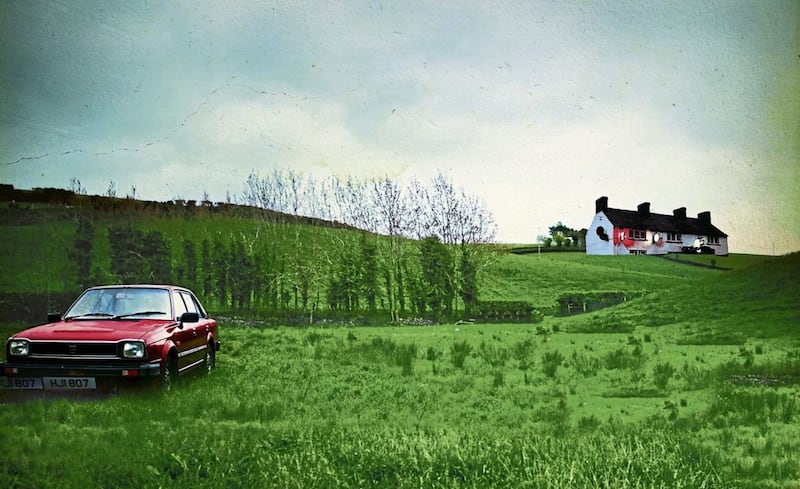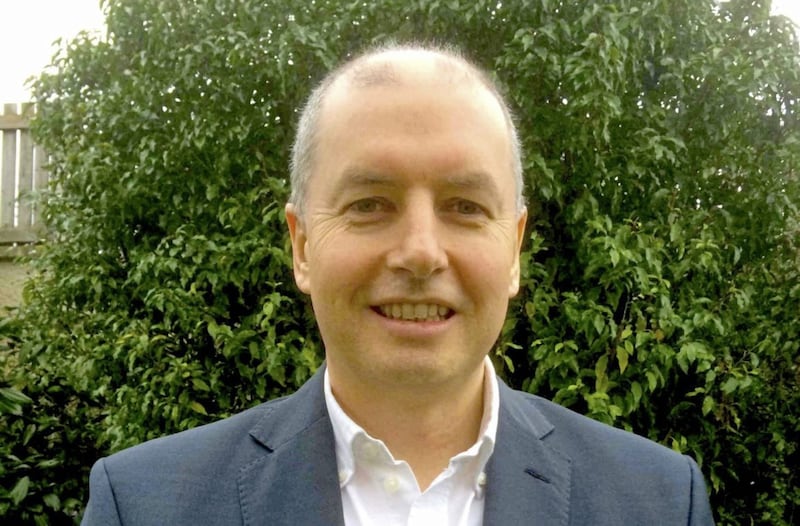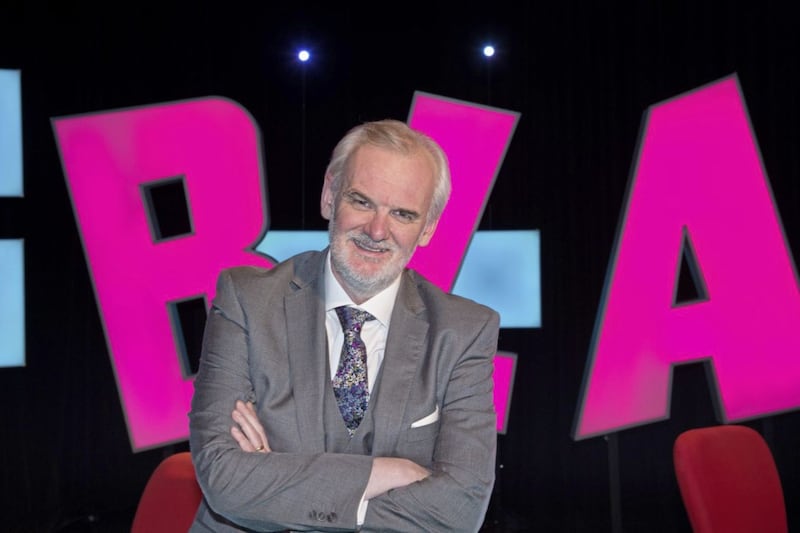"THERE are times in history when you feel that nothing can change – and then there are other times when you feel like everything can change," says George Monbiot.
"I believe we live in one of those times when everything can change."
Crucially, as the author, columnist and environmental campaigner explains in his new book and lecture tour Out of the Wreckage: A New Politics for an Age of Crisis, he also thinks there is currently a huge opportunity for people to change things for the better, from the 'bottom' up.
"We're in a time of great political volatility where all the old certainties are falling apart with great speed," explains Monbiot, who will be appearing at Belfast's Imagine! festival later this month.
"It is a time of great danger but also a time of great opportunity: the danger lies in reactionary and fascist movements filling that space, the opportunity lies in altruistic and generous movements filling that space. And if we don't move into that space quickly then the fascists will."
Luckily, the London-born author's current book is packed with suggestions for positive political, social and economic reforms which would see us rejecting the 'toxic ideology' of neoliberalism once and for all in favour of building a new system founded in co-operation, community and belonging – ideals which science tells us are much more in tune with basic human nature than the increasingly ruthless competitive and individualistic notions propagated by our current rulers.
"Broadly speaking, we are a society of altruists governed by psychopaths and it's a situation we should try to do something about," Monbiot tells me.
"It's quite an amazing thing that all the research and surveys show that, while we've all got a bit of selfishness and greed within us, those are not the dominant values of the majority of people.
"The majority's dominant values are altruism, empathy, community feeling, family feeling – they want life to be better for the majority, not just themselves. Yet time and again, we elect to rule over us people who have an entirely different set of values, who are primarily selfish and greedy.
"There's been quite a lot of psychological work showing that political and corporate leaders often score very high on the psychopath spectrum – and yet we enable these people to control our lives and determine how society should be run. Something has gone very wrong there.
"We don't have to change human nature –we just have to reveal it. We have to be the good people we naturally are and drive out of the way the forces which drive us towards doing bad things."
Indeed, the author argues we're now in dire need of a new 'restoration story' in which to invest ourselves, one which puts ordinary citizens back at the heart of politics via participatory democracy – a grassroots-powered regime change involving the establishment of a new 'political community' on a national level which connects and empowers people as they work towards shaping a brighter future together.
"We need to develop very rapidly a 'politics of belonging', a politics rooted in community, in participation and in creating bridging networks – networks that bring different communities together rather than just 'bonding networks' bringing together people who are basically homogeneous," Monbiot tells me.
"There's now a whole science as to how you can build bridging networks to break out of people's comfort bubbles and connect different communities together.
"There's been loads of work done around the world to show how this can be done most effectively – and that, I believe, is the basis on which politics should be built.
"Coming out of that, I want to see a whole series of participatory measures; participatory democracy to run alongside our representative democracy. We have this crazy situation at the moment where a politician will say 'well, you elected me so I'm empowered to do this' even though the election was four years ago and 'this' wasn't even in their manifesto.
"The whole system runs on presumed consent, but we don't say that presumed consent is acceptable in sex and neither is it acceptable in politics: there should be explicit consent for any major decision a government wants to introduce, with reference to the people."
As Monbiot explains, there are already systems of such consent-centric participatory democracy functioning successfully around the world which could be used as a model for change.
"A very good one is the Better Reykjavík system, where basically the whole population runs the city," he enthuses.
"It's a very clever participatory system they've devised which ensures that decision-making belongs to the people. They have genuinely 'taken back' the city and the results have been remarkable – a massive improvement in people's quality of life.
"There's no reason why similar initiatives and also participatory budgeting can't be rolled out worldwide."
Closer to home, the author's tour recently took him to Barking in Dagenham – "the most deprived borough in London," he notes – where an inspiring revolution in 'participatory culture' is already under way thanks to the Every One Every Day initiative.
"It's a world-leading project," Monbiot explains, "there's nothing quite like it on Earth.
"They're turning participatory culture into something entirely normal to create a system where everyone feels that they want to become involved. It's drawing on nine years of global research and it's already having amazing results: thousands of people setting up their own events and community activities.
"What I kept hearing from people in the borough was words to the effect of ' I used to hate this place and I just wanted to move out, but now I want to stay'. It's created a sense that the borough belongs to its people now and they belong to it.
"They can actually shape their own lives – and that's exactly what we all need to be doing."
:: George Monbiot: Out of the Wreckage: A New Politics for an Age of Crisis, March 26, Peter Froggatt Centre, Queen's University Belfast, 7.15pm. This event is sold out.
:: Imagine that – 'three to see' at this year's Imagine! festival
:: The Importance of Investigative Journalism
(March 26, QFT Belfast, 6pm)

A SCREENING of No Stone Unturned, Alex Gibney's powerful and controversial 2017 documentary about the Loughinisland massacre, will be followed by post-film discussion with journalists about the themes of the film.
:: Comhar na gcomharsan i bpolaitíocht teanga na Gaeilge
(March 27, McCracken Centre, 283-289 Antrim Road, 7pm)

HOST Conchúr Ó Giollagáin will examine the social and political challenges faced by Gaels, including claims that the current state of 'Irish language politics' is corrosive to the greater Irish language community.
:: Tim McGarry’s Political Party
(March 28, The Black Box, 7pm)

IS POLITICS getting you down? Then join comedian Tim McGarry as the Blame Game host and Hole In The Wall Gang leader 'finds the funny' in all things political and – with a leap of fertile imagination – envisages a functioning government at Stormont.
:: Tickets and full programme information at Imaginebelfast.com




